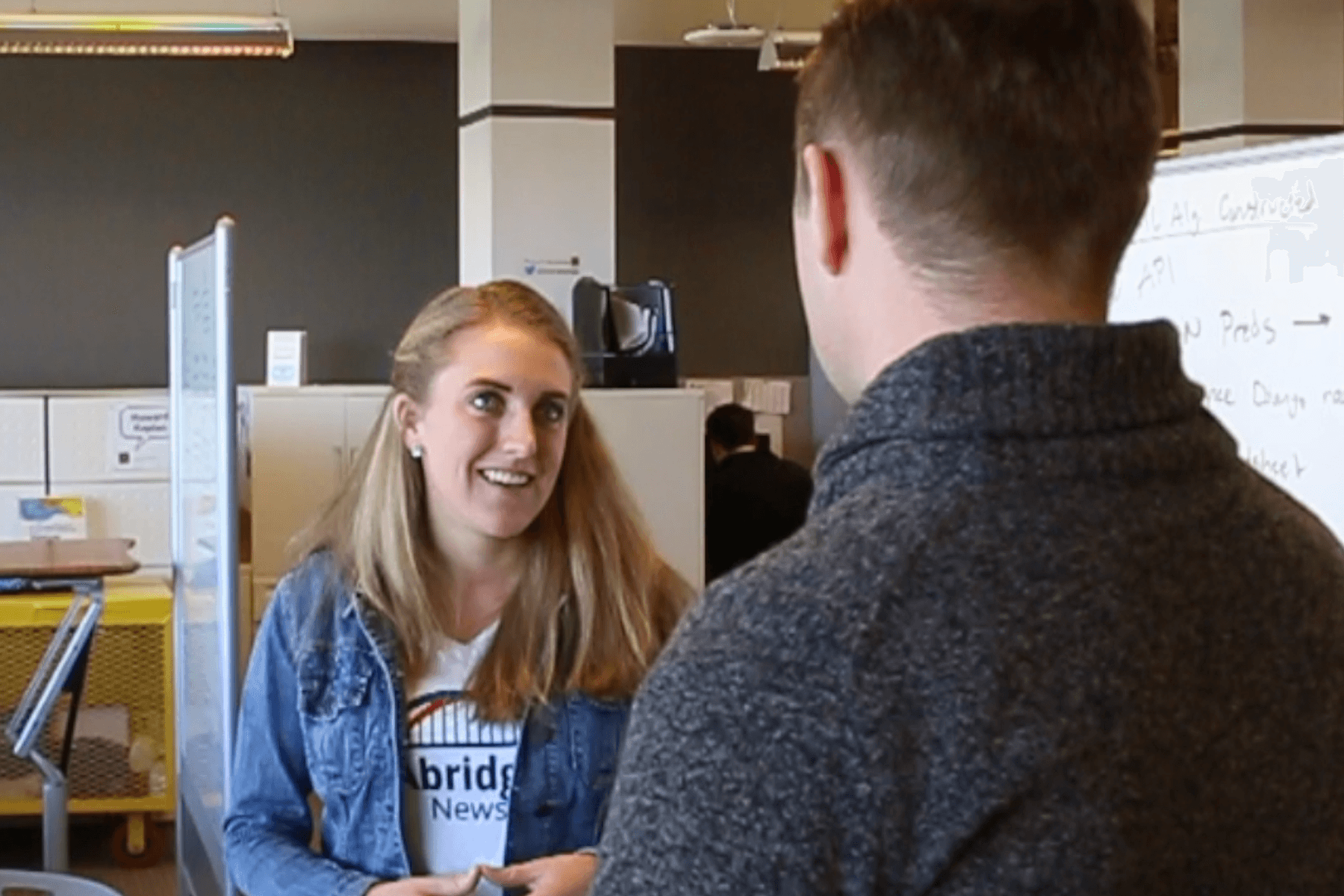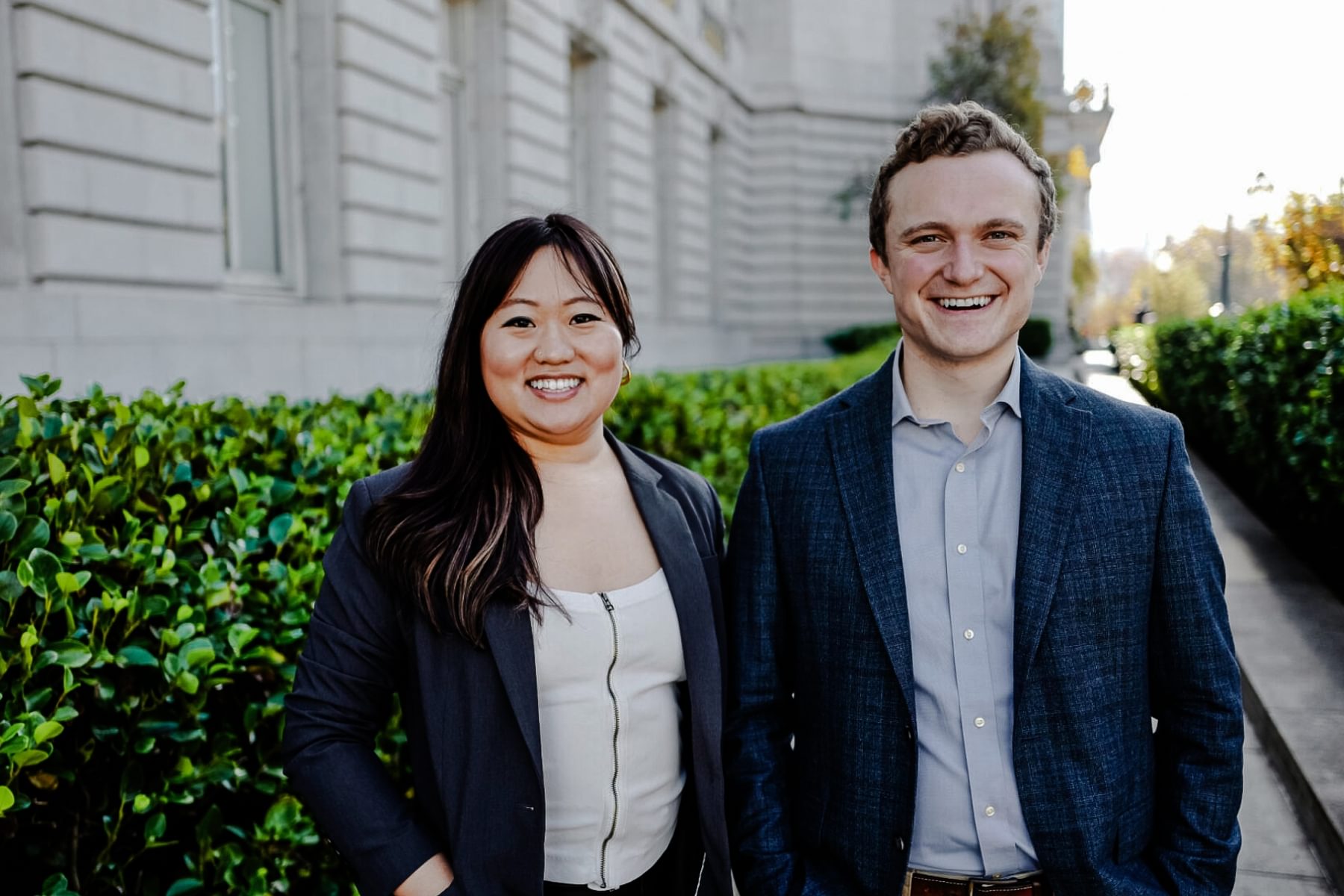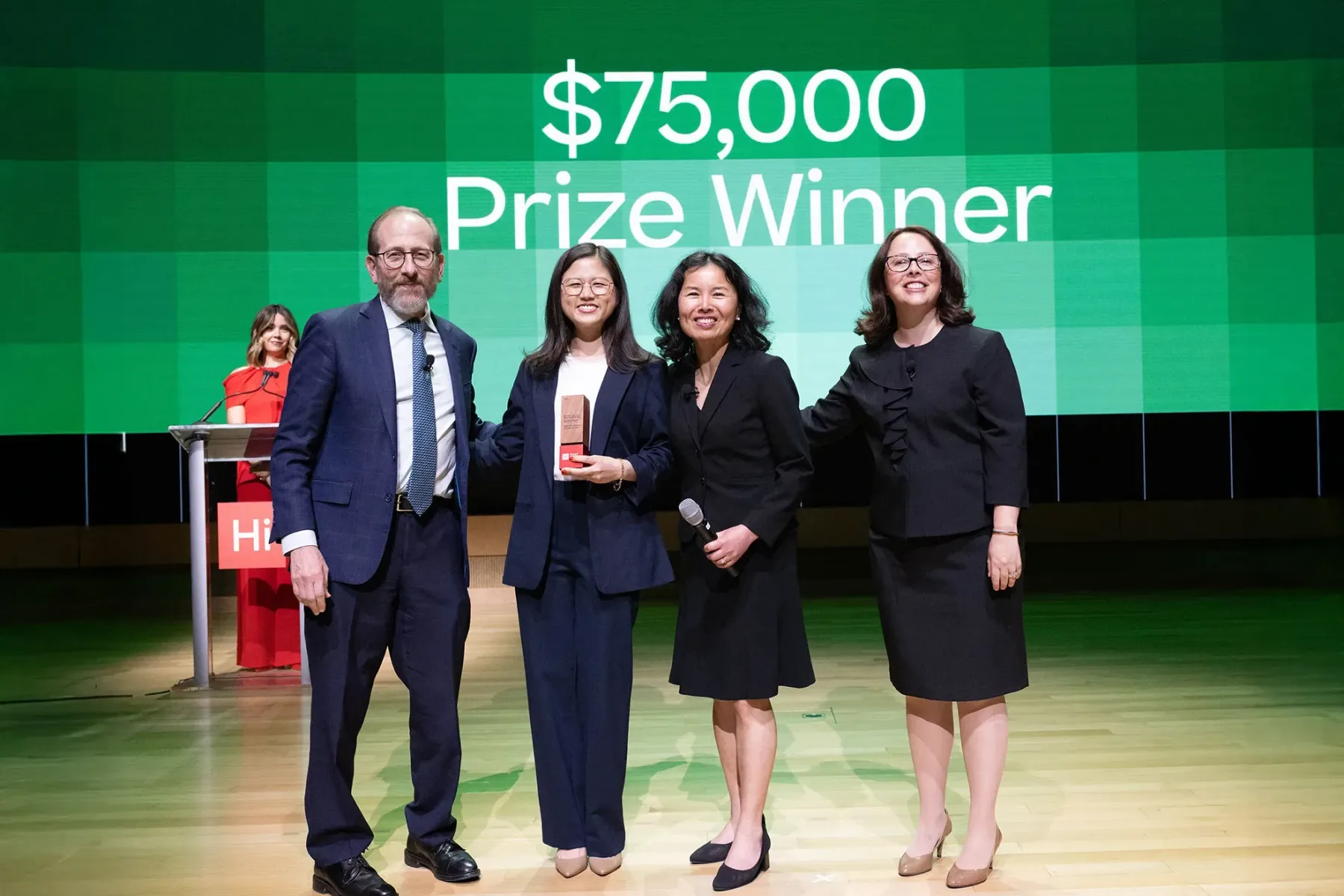In entrepreneurship circles, people sometimes talk about “founder-venture fit” — the degree to which the mindset and the skill set of a founder aligns with challenges their startup faces.
So it might surprise some of Laura Carpenter’s old classmates from the Woodruff School of Mechanical Engineering at Georgia Tech to hear that she’s not only building a media venture in the political arena, she’s also taking on one of the most complex, thorny social problems of our time: the growing polarization in political and public discourse.
“It might seem like a very weird area for me to be tackling,” Carpenter says. “But the way that I like to explain it is that my teammates and I love people, we love good conversation, and that’s what’s really at the core of Abridge News.”
Abridge News is a web-based op-ed aggregator that promises “Balanced opinions on the day’s most-discussed stories.” Users visit the site daily for multiple takes on a featured political or social issue in the headlines.
One recent topic was the resignation of Gary Cohn, the Trump Administration economics advisor, over the president’s planned tariffs on imported steel and aluminum. Abridge News offered its users four opinion pieces:
- A “liberal” piece from Jeb Lund of NBC News entitled “Gary Cohn sacrificed his reputation and dignity to get tax cuts for his rich friends.”
- A “mid-left” piece from Jeffrey Sachs of CNN titled “Gary Cohn is the latest Goldman Sachs alum to ill-serve America.”
- A “mid-right” piece from the Bloomberg Editorial Board that says Cohn “performed well” in a “thankless” job.
- A “conservative” piece from the Wall Street Journal Editorial Board that calls Cohn’s departure a “huge blow to the Trump administration” and says he “accomplished a great deal.”
The idea behind the multiple opinions, Carpenter says, is engaging with what she calls the “empathy problem” in contemporary discourse.
“A lot of people are frustrated with feelings of divisiveness, or polarization especially, in America right now, and I think a lot of people are diving deeper into underlying causes for this, whether it’s echo chambers or filter bubbles,” Carpenter says.
“We did a ton of customer discovery work, and what we were hearing was that people want to know what the other side is saying,” she says. “Nobody will sit and proudly say ‘I get my news from one source,’ or ‘I want to make a decision based on biased information.’”
“We aren’t necessarily trying to change people’s views or bring people closer or farther away from the middle of the spectrum, we just want to make it easier for somebody to understand why someone else might disagree. And to restore a little sanity to the conversation,” Carpenter says.
A North Carolina native, Carpenter is in her second year at Harvard Business School. Coming out of Georgia Tech, she briefly worked as an engineer for a utility company, going out on the road with line crews and switching circuits in substations. After a pivot to management consulting, she enrolled at HBS, feeling like she wanted more direct control of the work she was doing.
She says the case-method discussions she experienced in her HBS classes were a revelation. While the advocacy for different sides of an argument was always robust, it was civil and productive. It was also a stark contrast to the public discourse before and after the 2016 election.
“There was such a disconnect when I left class … I would hear the way that people talked about politics and the way they characterized people who were on one side or the other,” she says.
That disparity inspired her to think she could tackle polarization as a business problem. After finding the i-lab, she created “Moderator,” her first iteration of the company. The idea was to bundle digital access to major publications like the New York Times, the Washington Post, and the Wall Street Journal into a single universal subscription that would give people easy access to multiple takes on a story. But as a startup with little funding and no customers, she had trouble getting traction with big media corporations. She was also hearing from potential customers that the real reason they weren’t seeking alternate opinions was a lack of free time, not pricing or paywalls.
“People have five minutes in the morning when they’re skimming through headlines,” Carpenter says. “So we said: ‘Can we craft an experience where we provide access to balanced opinions … and fit it into that five minutes while also making into a really fun and engaging process?’”
Thus, Abridge News was born. At first the site featured news stories, but since it is extremely difficult to accurately categorize entire news organizations along the traditional left-right spectrum, Carpenter decided to go with op-ed pieces for better clarity.
Abridge News’ editorial team currently consists of Carpenter and two writers, Kristine Sowers and Noah Howell. Co-founder David Byas-Smith does the tech and design work remotely from Atlanta. Madi Johnson, a Harvard undergraduate, creates and manages the Abridge News newsletter, while UNC-Chapel Hill student Sarah Cline helps with social media.
Each day Carpenter, Byas-Smith and the team pick a topic and start scanning news sites for op-eds. Out of an initial list of as many as 50, they’ll choose four that seem to represent the four points on the Abridge spectrum. Users can read opinions, indicate whether they agree, disagree, or are undecided about them, and swipe left or right for a different view. They can also share the topic via social media. Refinements to the site are currently underway that will allow users to share more nuanced, granular reactions.
The company is currently funded through a pre-seed grant from the Rock Center for Entrepreneurship and Carpenter says Abridge News has been receiving “strong, organic user traction.” Although polarization is undeniably increasing, she says, recent polls also show that the number of people who are classifying themselves as independents has also gone up, to more than 40 percent.
“We think of Americans as being extremely divided on one side or another,” she says. “But we hear from a lot of people who say: ‘I don’t want to be classified in a particular way. I have nuanced views.’ And we’re trying to create an experience that reflects that too.”
Carpenter says that with today’s headlines about how social media has been used to drive political agendas and shape public opinion, it’s also important for companies like Abridge News to show that technology can be used to bring people together as well as to drive them apart.
“We want to take all the great things that tech and digital platforms can enable, and use it to drive empathetic, healthy behavior,” she says.
Is that a big goal? Yes. An unachievable one? Perhaps. But Carpenter says that the atmosphere and community of innovation at the i-lab and HBS make it seem possible.
“There’s definitely a change-the-world atmosphere here. I think more than anything, when you’re surrounded by others who feel and believe like they can change the world, you internalize that, and I know I’ve internalized that and I feel like I can do the same,” she says. “It’s not enough just to identify a problem and to complain about it, you should take what you’ve learned, take tools, surround yourself with great people and great teammates and act to build a better society.”





